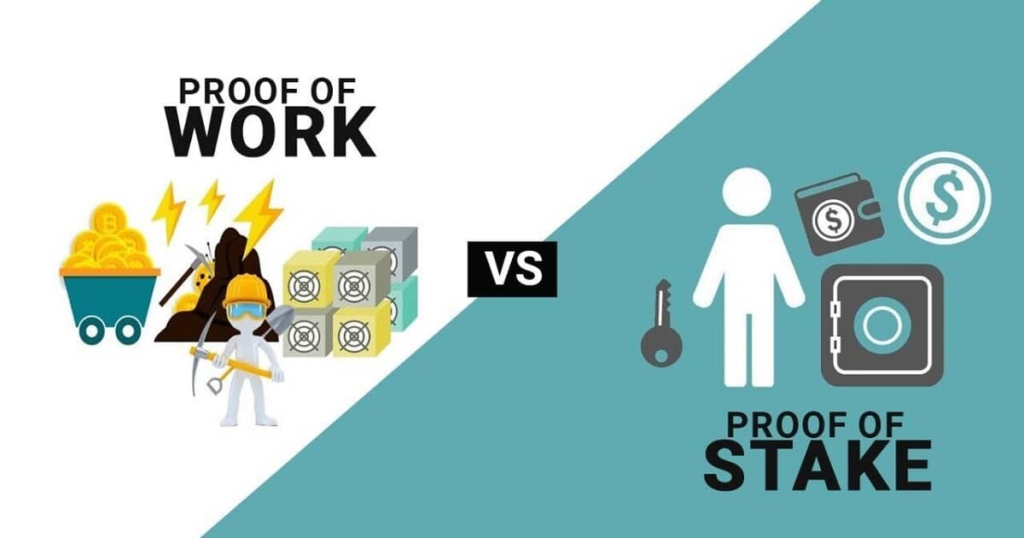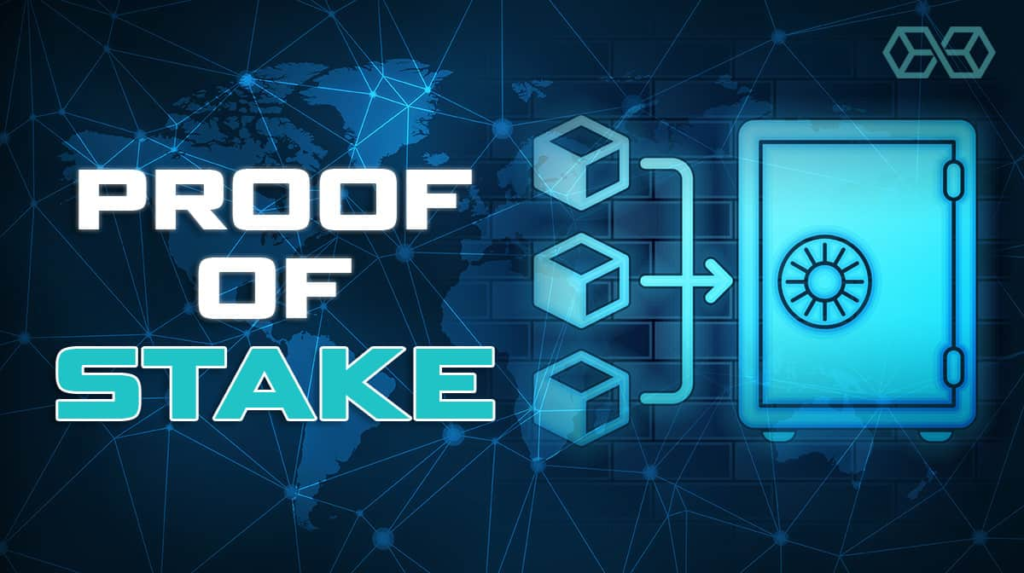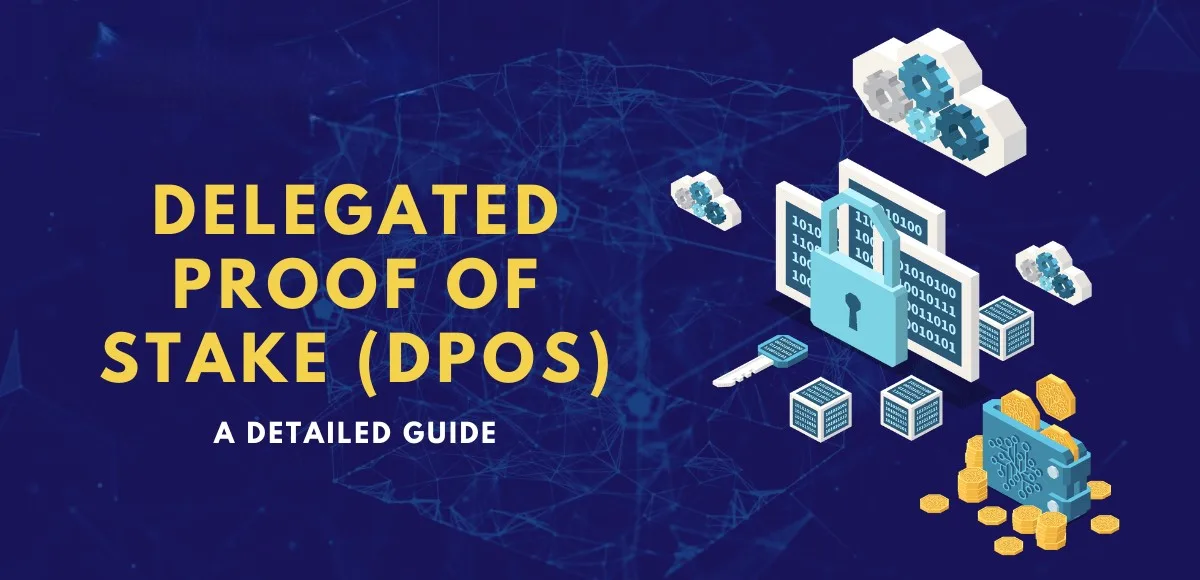What is DPOS and How Ecrox Chain Uses It: Blockchain technology has revolutionized the way we think about data security, transparency, and decentralization. At the heart of these innovations are consensus mechanisms, crucial for maintaining the integrity and functionality of blockchain networks. One such mechanism, Delegated Proof of Stake (DPOS), stands out for its efficiency and effectiveness. This article explores what DPOS is, how it works, and how the Ecrox Chain utilizes this technology to enhance its blockchain ecosystem.
Understanding DPOS (Delegated Proof of Stake)

Definition and Concept
Delegated Proof of Stake (DPOS) is a consensus algorithm that relies on a reputation-based voting system to secure a blockchain. Unlike traditional Proof of Work (POW) which requires extensive computational power, DPOS operates on a democratic principle where stakeholders vote for a small number of delegates to validate transactions and create new blocks.
History and Development
DPOS was first introduced by Daniel Larimer in 2014 as an alternative to the energy-intensive POW and the capital-heavy Proof of Stake (POS). It aimed to provide a more scalable and efficient solution while maintaining a high level of security and decentralization.
Key Features of DPOS
- Delegates and Voting: In DPOS, stakeholders vote for delegates (also known as witnesses) who are responsible for validating transactions and creating new blocks. Each stakeholder’s vote is proportional to their stake in the network.
- Block Production: Unlike POW where miners compete to solve complex puzzles, DPOS delegates take turns producing blocks in a pre-determined order. This rotation ensures a fair distribution of rewards and responsibilities.
- Security and Efficiency: DPOS is designed to be highly efficient, with block times often much shorter than those in POW or POS systems. Security is maintained through a reputation system, where malicious delegates can be voted out by the community.
How DPOS Differs from Other Consensus Mechanisms

Comparison with Proof of Work (POW)
POW, used by Bitcoin, requires miners to solve computational puzzles to validate transactions. This process is energy-intensive and can lead to centralization as only those with significant resources can compete effectively. In contrast, DPOS uses a voting system, reducing energy consumption and potentially enhancing decentralization.
Comparison with Proof of Stake (POS)
POS, used by Ethereum, selects validators based on the number of tokens they hold and are willing to “stake” as collateral. While POS is less resource-intensive than POW, it can still lead to wealth centralization. DPOS mitigates this by involving the community in selecting delegates, thus distributing power more evenly.
Advantages of DPOS
- Speed and Scalability: DPOS can handle a higher number of transactions per second (TPS) due to its efficient block production process.
- Community Governance: The voting system allows for a more democratic approach to network management.
- Lower Energy Consumption: Without the need for extensive computational power, DPOS is much more environmentally friendly.
The Inner Workings of DPOS

Delegate Selection Process
Delegates are selected through a voting process where each token holder can vote for multiple delegates. The candidates with the highest votes become active delegates responsible for block production.
Voting Mechanics
Votes are weighted by the amount of stake each voter holds. This means that those with more significant investments in the network have more influence over delegate selection, encouraging them to vote for reliable and trustworthy delegates.
Block Validation and Creation
Delegates take turns producing blocks in a round-robin fashion. If a delegate fails to produce a block in their turn, the opportunity passes to the next delegate. This ensures continuous and efficient block production.
Introduction to Ecrox Chain
Overview of Ecrox Chain
Ecrox Chain is a cutting-edge blockchain platform designed to provide a secure, scalable, and efficient environment for decentralized applications (dApps). By leveraging DPOS, Ecrox Chain aims to deliver high performance without compromising decentralization or security.
Mission and Vision
Ecrox Chain’s mission is to create a blockchain ecosystem that empowers developers, businesses, and individuals by providing a robust infrastructure for decentralized applications. Its vision is to become a leading platform in the blockchain space, known for its efficiency, security, and community-driven governance.
Why Ecrox Chain Chose DPOS

Benefits for Ecrox Chain
DPOS was chosen by Ecrox Chain due to its ability to offer a perfect balance between performance and decentralization. The voting mechanism ensures that the community has a say in the network’s operation, while the delegate system allows for fast and efficient transaction processing.
Performance and Scalability
With DPOS, Ecrox Chain can achieve high transaction throughput, making it suitable for a wide range of applications, from simple transactions to complex smart contracts. This scalability is crucial for supporting the growing demands of decentralized applications.
Decentralization and Security
Despite its efficiency, DPOS on Ecrox Chain maintains a high level of decentralization. By involving the community in the governance process, Ecrox Chain ensures that no single entity can dominate the network. Additionally, the reputation system for delegates enhances security by incentivizing good behavior and penalizing malicious actions.
How Ecrox Chain Implements DPOS

Delegate Election on Ecrox Chain
On Ecrox Chain, the delegate election process is transparent and inclusive. Token holders can nominate themselves or others as candidates, and the community votes to elect the most suitable delegates based on their reliability and contribution to the network.
Voting and Participation
Ecrox Chain encourages active participation from its community. Regular voting cycles are held, and token holders are incentivized to vote by receiving rewards. This ensures that the elected delegates represent the community’s best interests.
Block Production on Ecrox Chain
Ecrox Chain’s block production process is streamlined to maximize efficiency. Delegates produce blocks in a scheduled order, and any missed blocks are quickly addressed to maintain the network’s performance and reliability.
Benefits of Using DPOS for Ecrox Chain
Increased Transaction Speed
Thanks to DPOS, Ecrox Chain can process transactions rapidly, making it ideal for applications that require fast confirmation times. This increased speed is a significant advantage for users who need quick and reliable transaction processing.
Enhanced Security Measures
The combination of a reputation-based delegate system and community governance enhances Ecrox Chain’s security. Malicious delegates can be quickly removed, and the network’s decentralized nature makes it resilient against attacks.
Community Involvement and Governance
DPOS allows the Ecrox Chain community to have a direct impact on the network’s direction and policies. This involvement fosters a sense of ownership and ensures that the platform evolves in line with the community’s needs and values.
Challenges and Criticisms of DPOS
Potential for Centralization
One criticism of DPOS is the potential for centralization, as large stakeholders can have significant influence over delegate selection. However, Ecrox Chain addresses this by promoting voter engagement and ensuring a wide distribution of voting power.
Voter Apathy
Voter apathy can be a challenge, as some token holders may not participate in the voting process. To combat this, Ecrox Chain provides incentives for voting and educates its community on the importance of active participation.
Mitigation Strategies by Ecrox Chain
Ecrox Chain employs various strategies to mitigate these challenges, such as implementing voter rewards, promoting transparent governance, and regularly rotating delegates to prevent the concentration of power.
Real-World Applications of Ecrox Chain’s DPOS
Use Cases and Success Stories
Ecrox Chain’s DPOS implementation has enabled various successful applications, from decentralized finance (DeFi) platforms to supply chain management solutions. These use cases demonstrate the platform’s versatility and effectiveness.
Future Prospects
Looking ahead, Ecrox Chain aims to expand its ecosystem by attracting more developers and projects. The platform’s robust infrastructure and community-driven governance position it well for future growth and innovation.
Conclusion on What is DPOS and How Ecrox Chain Uses It
In summary, DPOS is a powerful consensus mechanism that combines efficiency, security, and decentralization. Ecrox Chain’s implementation of DPOS has enabled it to create a high-performance blockchain platform that empowers its community and supports a wide range of applications. As blockchain technology continues to evolve, Ecrox Chain is well-positioned to lead the way with its innovative use of DPOS.
FAQs on What is DPOS and How Ecrox Chain Uses It
What is the main advantage of DPOS over POW?
The main advantage of DPOS over POW is its efficiency. DPOS requires significantly less computational power, leading to faster transaction times and lower energy consumption.
How does Ecrox Chain ensure security with DPOS?
Ecrox Chain ensures security through a reputation-based delegate system and community governance. Malicious delegates can be voted out, maintaining the network’s integrity.
Can DPOS lead to centralization issues?
While there is a potential for centralization, Ecrox Chain addresses this by encouraging widespread voter participation and regularly rotating delegates.
How can users participate in Ecrox Chain’s DPOS?
Users can participate by voting for delegates, running for delegate positions, and engaging in community discussions and governance activities.
What are the future plans for Ecrox Chain?
Ecrox Chain plans to expand its ecosystem, attract more developers, and continue enhancing its platform’s performance and security through innovative technologies and community involvement.
For more info visit Ecrox Coin and also check out Ecrox Launchpad.


